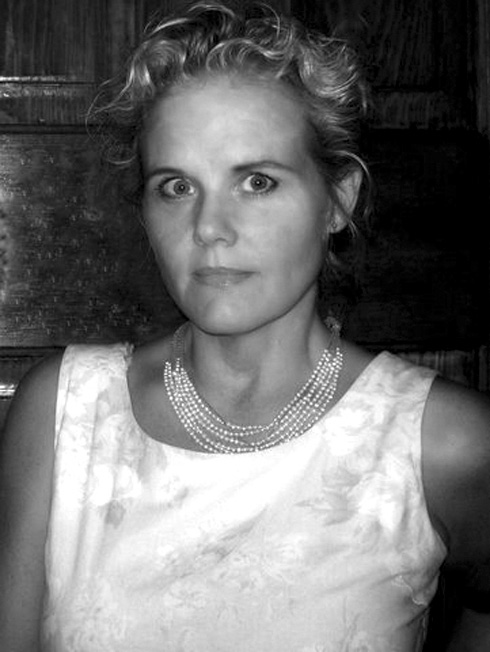 The Landsbanki of Iceland kept itself running with the savings of British and Dutch depositors—charities, school-building municipalities, and “grandmothers saving for old age,” one of my favourite Icelandic columnists, Guðmundur Andri Thorsson, wrote in Fréttablaðið last month. True. But of the “no!” shouted by Icelandic voters, only a whisper was directed at these parties. Everyone knows that of the Icesave loot, only a small portion went to finance “cars and real estate bubble,“ foreign vacations and other fancy widgets for the Icelandic public. Most of this money went to “Björgólfsson-related companies” and the usual suspects on the Icelandic financial crimes scene, or as Guðmundur put it: “into [bank] owners’ and their best buddies’ idiocy.”
The Landsbanki of Iceland kept itself running with the savings of British and Dutch depositors—charities, school-building municipalities, and “grandmothers saving for old age,” one of my favourite Icelandic columnists, Guðmundur Andri Thorsson, wrote in Fréttablaðið last month. True. But of the “no!” shouted by Icelandic voters, only a whisper was directed at these parties. Everyone knows that of the Icesave loot, only a small portion went to finance “cars and real estate bubble,“ foreign vacations and other fancy widgets for the Icelandic public. Most of this money went to “Björgólfsson-related companies” and the usual suspects on the Icelandic financial crimes scene, or as Guðmundur put it: “into [bank] owners’ and their best buddies’ idiocy.”
The Icelandic public is sick and tired of reading News of the Plush & Privileged, such as the one about how a recent business move by one of the Icesave beneficiaries (who avoided bankruptcy by transferring his debts to a family shell company) made him billions. Week after week, day after day Icelanders have watched as the government shields those responsible for the country‘s financial catastrophe from the consequences of the destruction they wreaked upon the nation or idly sits by as the rabble continue to destroy or manipulate the nation’s rebuilding.
The Minister of Finance—the nation‘s supreme financial decider!—claims he doesn‘t have the power to govern over the country’s financial institutions (whose crimes and mismanagement have left the country in smouldering ruins)! The banks’ self-serving “resolution committees” annul hundreds of millions in loans to bank executives—money used to commit a crime, to manipulate the banks’ stock value (aw, but it’s not fair to make the poor guys repay these loans; after all the stock is now worthless)! The lackeys who helped drive Iceland into the ground still sit pretty in the country’s “new” banks where they arbitrarily write off for their buddies business loans worth billions used to fuel the owners’ boundless greed and hedonism.
But the ordinary Icelander with an indexed mortgage taken at the height of the bubble receives neither annulments nor write-offs, only a lifelong debt slavery sentence.
One of the most important concepts of modern democracies is that all the state‘s citizens be equal before its laws: “[…] in free countries the law ought to be king; and there ought to be no other,” so, as John Adams wrote in Massachusetts‘ Constitution, “to the end it may be a government of laws and not of men.”
When the results of the Icesave elections were clear, Prime Minister Jóhanna Sigurðardóttir remarked that the referendum had “[…] divided the country in two.” But that division took place decades ago. Iceland has long been home to two nations—of the plush and privileged and of the unwashed masses. The former tribe creates the laws but consider themselves above them; the latter shall obey the laws and face the consequences of breaking them. The former does not have to pay its debts; the latter shall pay its debts—and those of others.
To add insult to injury, the public has for years watched as the privileged flaunt financial schemes in the form of bankruptcy and tax frauds and rabid abuses of the corporate form, all sanctioned by the government and political leaders. These shameless financial acrobatics, which would be illegal in any civilized country, is what in Iceland passes for business as usual. When stretching these financial fraud operations to bypass the law is too inconvenient, the moneyed class simply has its political minions tailor the country’s legislation to ensure that the nation’s wealth continues to flow into their pockets.
By giving the privileged classes a free pass to break and bypass the laws of the land, Icelandic governments have created among their citizens a sense of not only intolerable injustice, but also one of Iceland’s greatest problems. The financial costs are indisputable, but the damage done by this disgrace in the form of general disrespect for the law cannot be measured. Indeed, Adams saw a future where government was created by “men and not laws,” and it wasn’t pretty. It also wasn’t in Massachusetts.
I am convinced that most Icelanders respect the rights of British and Dutch depositors and are prepared to shoulder our responsibilities in accordance with international laws. But we also believe that those responsible for Icesave should pay. Almost three years have passed since the collapse and not a single bank perp is behind bars. Not even prosecuted. And where are they and their underlings? Most of them are still sucking at the banks’ taxpayer-supported teats or other udders obese from the ill-begotten gains procured by the criminal cartel that in Iceland passes for a “business and financial sector.”
“We cannot pretend that the Icesave money has nothing to do with us,” Guðmundur Andri Thorsson writes. True. But the problem is that the Icelandic government pretends that the Icesave money has nothing to do with the Icesave thieves. If the average Icelander could detect the smallest signs that those responsible for Icesave and the Icelandic banks’ financial crimes shared in the sacrifices that the Icelandic people are expected to make because of their actions, the nation would without a doubt have said “yes.”
Buy subscriptions, t-shirts and more from our shop right here!
















